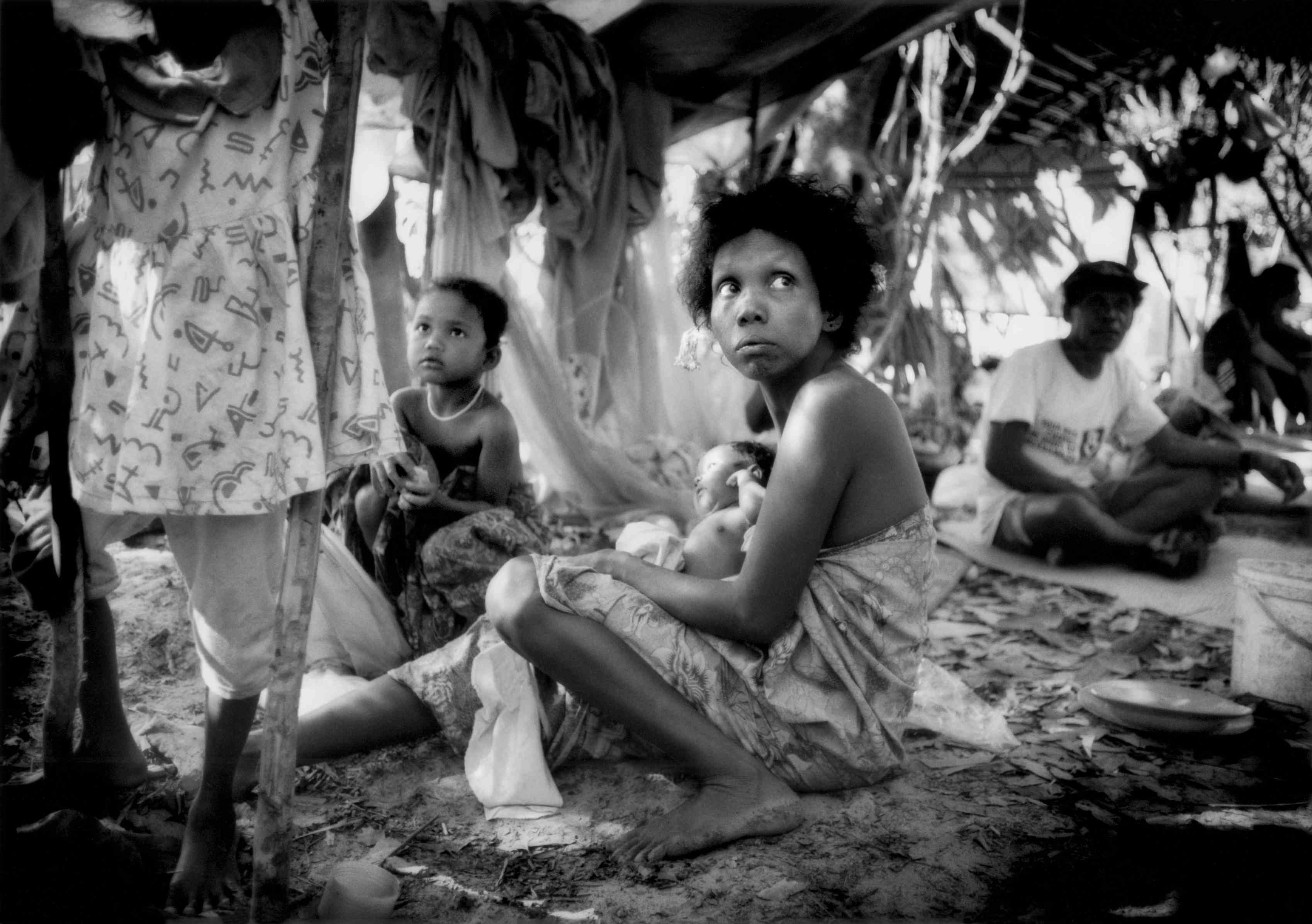
Arriving in Gua Musang, Malaysia, the air was surprisingly cool. There are two seasons in the ever-wet tropical rainforest: wet and wetter. Towering trees cover limestone karst mountains, the same kind that are famous in Guilin, China. The mountains rise at the end of the main street beyond the tracks that carry the so-called "jungle train" through town.
Nowadays, jungle train is a bit of a misnomer; the "oil palm" train would be more accurate. On the wall in a Chinese-Malaysian restaurant on the main drag hangs a yellowing color photograph from 1986, the boom time for logging. It shows the trunks of the giant trees piled up beside the tracks, towering over a passing train. The diameter of a single tree is taller than the train engine. Now, continuous oil palm plantations extend from here to the edge of the forest at Taman Negara National Park, an hour and a half drive away.
North of the park there was once a massive forest. It has all been clear cut since the 1970s and converted to oil palm plantations. This used to be the homeland of the Batek Negrito people. They now live huddled against the northern boundary of the park. The Batek have been alotted a treeless parcel of land beside the park entrance at Kuala Koh. They have built a ramshackle collection of bamboo huts, with some motor bikes and a car or two parked nearby. The government is now building cinder block houses for them. The settlement is at the junction of a new logging road that parallels the park boundary. Loggers--the Batek refer to them as 'the Chinese' because they are ethnic Chinese Malays--built the road just over two years ago to log out the tiny remnant of forest buffer zone.
The Batek take advantage of faster travel the road offers. Masters of survival in the forest, some Batek actually work for the logging company, digging holes and other unskilled day labor. Any anger they harbor toward the loggers is overlaid with a fatalistic acceptance that a small band of forest dwellers, with little money and limited contact with the outside world, cannot possibly offer serious resistance to a powerful people coming in with machines and large numbers of men to lay waste to the only world they have ever known.
The Batek are a Negrito people, probably part of the first migration of humanity out of Africa. They are small in stature and are considered pygmies. Many believe that their closest known relatives are the San of the Kalahari Desert, often referred to as the "Bushmen of the Kalahari." Like the San, who are also diminutive, they have coco-brown skin, woolly hair and subtly hooded eyelids. They may be the last remnant of a race of people who used to be widespread throughout Southeast Asia, even as far north as Taiwan. Now there are only tiny pockets of Negrito peoples in Peninsular Malaysia, the Philippines and on the Andaman Islands in the Indian Ocean. They owe their African appearance to the fact that their ancestors migrated from Africa to an African-like climate and never needed to physically adapt to a new climate.
Six months ago, the logging road was dry and hard. Now, in the "wetter" season it is a muddy quagmire, impassable to all but four-wheel drive vehicles. Animal tracks are evident: wild boar, kijang (barking deer), a small feline-like bobcat and, most notably, numerous elephant tracks near the Batek's main settlement. The elephants are attracted to oil palm fruit like candy. On this first day, it was a time of reunion and offering photographs of Batek people that I made on my last visit. A connection is re-established with the settlements that have been moved to higher ground to accommodate the rain swollen rivers that ran placid in May.
Before the Batek lost their forest, they would fish and hunt with bamboo blowpipes and poison darts. They also used to gather tubers, similar to sweet potatoes, along with a dark aromatic resin from the gaharu (agarwood) to earn a little hard currency in trade with lowlanders. Now each settlement has a swidden field planted with sweet potato, cassava (manioc) and banana. They still fish and hunt, but do less gathering in the forest.
The Batek say that nowadays they rarely enter the park. The government wants to keep it that way, part of its policy of permanently drawing them out of the forest and into mainstream Malaysian society. Meanwhile, the loggers may soon take away what little forest this clan of Batek have left. The loggers are preparing a new camp beside the innermost Batek settlement. The ancient trees, some over 80 meters tall, could be in the final months of their centuries-long lives.


